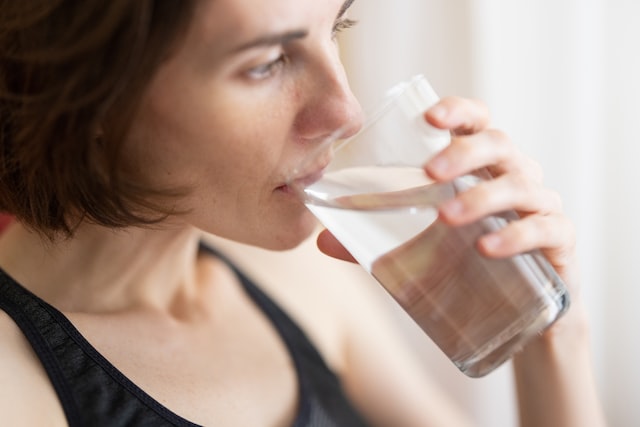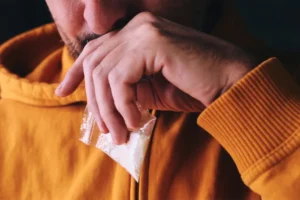Table of content
JOIN FREE GROUP
All About Recovery
Facebook Group • 2213 members
There's always clouds before the rainbows. Join many others who are going through the same thing as you and see proof that it can get better.
JOIN FREE GROUP Dry Drunk Syndrome: What Is It and Are You Experiencing It?

Ever heard of the term dry drunk syndrome? There are many ways you can try to interpret this if you’re not familiar with it, but its meaning is far simpler than it may sound! Let’s discover the symptoms of dry drunkenness, how it arises and the ways you can better deal with it in the long term on your own, with medical advice or with the help of your loved ones.
Table of contents 1. What Does Dry Drunk Syndrome Look Like? 2. What Are the Symptoms of Being Dry Drunk? 3. Why Does Dry Drunk Syndrome Happen? 4. How to Deal With Someone Who Has a Dry Drunk Syndrome?
What Does Dry Drunk Syndrome Look Like?
Suffering from dry drunk syndrome can be best described as quitting your drinking habits without really dealing with what led you to become addicted in the first place. You’ve stopped cold turkey or managed to wean yourself off your substance of choice, which is a great accomplishment. However, the work doesn’t simply stop at giving up drinking. If you haven’t fixed or allocated efforts towards bettering the emotional and psychological issues that initially created this inner struggle, you’re most likely experiencing dry drunk syndrome.For most people, this fact may have lingered quite close to the moment of relapse, an occurrence you’re certainly trying to avoid. “Dry drunk syndrome” is an expression that was coined by the founder of Alcoholics Anonymous after noticing that quitting drinking without addressing issues often turns to destructive habits rather than progressing towards a healthier lifestyle.What Are the Symptoms of Being Dry Drunk?
Like with any disorder or addiction, symptoms vary from person to person, but the recurring symptoms of dry drunk syndrome include the following:- Experiencing communication issues and mood swings
- Living with anger and fear daily
- Remaining in denial of your issues and the fact that you suffer from alcohol use disorder
- Wanting to be the centre of attention when you’re out in public
- Acting as if you’re a victim of the situation
- Finding sobriety boring and sometimes voluntarily acting as if you’re still drunk
- Feeling jealous of those who have recovered in a healthy way or are engaged in a healthy recovery process
- Refusing constructive criticism
Why Does Dry Drunk Syndrome Happen?
Remember, being sober doesn’t mean that you’re in recovery! Oxford Languages defines recovery as the “action or process of regaining possession or control of something stolen or lost, a return to a normal state of health, mind, or strength”. Alcoholism is a chronic and progressive disease; therefore you should deal with dry drunkenness the same way; progressively and returning to a good cognitive state. Research has proven that you most likely will simply substitute your drink of choice for another substance or addiction if you don’t. Withdrawal symptoms might even last longer than supposed to as part of post-acute withdrawal syndrome (PAWS) for some people who don’t stop drinking in a healthy, long-term-focused recovery process.How to Deal With Someone Who Has a Dry Drunk Syndrome?
Do you know someone dealing with the symptoms of dry drunk syndrome and want to help them by giving them tools to progress? Are you yourself facing this problem and would like to explain to your loved ones how best to assist you in your development? Here are ways to deal with dry drunk syndrome and support through the stages of recovery:- Take in the actual symptoms through observation. What is your behaviour like? Which way do you talk about the disease? What’s your story of addiction? By assessing symptoms and realizing how they are engrained in you, you’ll put yourself in a better position to analyze, understand and move forward.
- Know that lifestyle and behaviour changes are required to face alcoholism and enter recovery; recognize it, your realities and admit to having them.
- Find and accept help and support, whether it be through medical advice, family support or friends you can count on.
- Develop a healthy routine. You might start by adding physical activity and exercise to your everyday habits. Eat better meals that are nutritious and flavourful filled with things you like that are good for you.
- Make sure to always drink plenty of water and integrate a sleep routine into your life as well so that you can catch enough zzzs to replenish.
- Take advantage of the sunlight, get outside, and make time for the people you care about. Why not pair the two and go for a walk with them or plan a picnic? It’s important that you connect with others while you’re committing to self-care.




